Retired General Stanley McChrystal, who led U.S. troops in Afghanistan until a Rolling Stone article in 2010 outed him as the "runaway general," told his sad tale to the 2013 PR Seminar at the Ritz-Carlton at Half Moon Bay June 2-5.
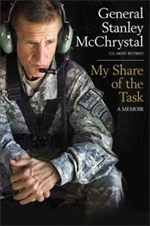 Former Secretary of State Condoleeza Rice initially accepted the invitation but was unable to attend. She was interviewed by CBS-TV June 3, saying U.S. action is needed in Syria to prevent destabilization in the region.
Former Secretary of State Condoleeza Rice initially accepted the invitation but was unable to attend. She was interviewed by CBS-TV June 3, saying U.S. action is needed in Syria to prevent destabilization in the region.
McChrystal has just authored My Share of the Task: A Memoir , in which he gives his view of events.
Although his remarks to Seminarians were off-the-record, he has made no secret of his feelings in recent months.
He told Yahoo!News Feb. 5 that his firing by President Obama is still "painful" to him although it was three years ago. He says he could imagine being fired for incompetence or being killed but "I never thought I could be painted with any brush of disrespect or disloyalty."
He had been summoned to the White House to explain the article to President Obama. Secretary of Defense Robert Gates said he had made "a significant mistake and exercised poor judgment in this case."
Rice Defers on Behghazi
Rice, Secretary of State from 2005-09, is currently a professor of political science at Stanford University. She was provost at SU from 1993-99.
Seminarians don’t share what any of the speakers say at their meetings but there are numerous YouTube segments and quotes of Rice on the web. She has refused to criticize the Obama Administration for its handling of the attack on the U.S. mission in Benghazi, saying that in the "fog of war," it is hard to know exactly what happened.
Seminarians spent a day at Stanford University as part of the 2013 meeting.
David Demarest, VP-PA of SU, is a longtime Seminarian. He was communications director of the 1988 Bush-Quayle presidential campaign and later worked for Bank of America and Visa.
Security Expert DeWalt Speaks
All scheduled speakers except Rice appeared on the program including Dave DeWalt, former CEO of McAffee who took the same title at FireEye, virus tracker, in November, 2012.
He has said he hopes to take FireEye public by the end of this year. Plans are underway for an initial public offering.
Other speakers were Stanford professors Robert Sapolsky, Jennifer Aaaker and Deborah Gruenfeld; futurist Edie Weiner, Mattias Klum, photographer for National Geographic; "social innovation experts" Jason Clay and Jason Saul, and Dean Ornish, M.D., whose topic was preventive medicine.
Conspicuously absent from the list of speakers were editors of major media. In previous years, editors of the New York Times, Wall Street Journal, CBS, Time magazine, CNBC, Fox, Financial Times and more than a dozen other major media were staples on the program.
Journalist Criticized Seminar
However, Peter Sussman, a founding member of the Ethics Board of the Society of Professional Journalists, said in 2009 that the presence of journalists at such a secret meeting violated ten articles of the SPJ Code. His scorecard:
"Tell the story of the diversity and magnitude of the human experience boldly." Actually, they are telling the story of the powerful meekly."
Give voice to the voiceless."
They seem more intent on giving voice to the voiced. If they were half as conscientious in seeking out the voiceless, we would have very different news narratives in this country.
"Recognize a special obligation to ensure that the public's business is conducted in the open"
Nope, obviously."
Avoid conflicts of interest, real or perceived."
No.
"Remain free of associations and activities that may compromise integrity or damage credibility." An emphatic no.
"Refuse gifts, favors, fees, free travel and special treatment, and shun secondary employment, political involvement, public office and service in community organizations if they compromise journalistic integrity." No, by implication if not by explicit prohibition.
"Disclose unavoidable conflicts."
No.
"Be vigilant and courageous about holding those with power accountable." An even more emphatic no.
"Deny favored treatment to advertisers and special interests and resist their pressure to influence news coverage." Ha!
PR Seminar (the name used on the 990 501/c/6 tax return) grossed $646,896 in the year ended August 31, 2011, the latest return available. EIN is 41-1838593.
Expenses were $496,850 for a profit of $150,046. Cash in a non-interest bearing account rose to $688,830 at the end of the year from $538,784 at the beginning of the year.
Seminar, which this year opened a public website, www.theseminar.biz, takes in most of its money from conference fees of about $3,500 for attendees.
New Yorker Profiles "Lie Factory" of Seminarian
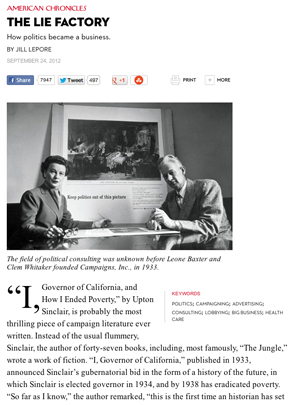 The Sept. 24, 2012 New Yorker devoted eight pages to one of its earliest members who was a regular attendee for decades-- Leone Baxter. Her name is on the first attendance list we obtained (1969) and was also there in 1991.
The Sept. 24, 2012 New Yorker devoted eight pages to one of its earliest members who was a regular attendee for decades-- Leone Baxter. Her name is on the first attendance list we obtained (1969) and was also there in 1991.
Only three other women were early PRS members. The 1969 list of 128 attendees also included Denny Griswold, editor of PR News, and Caroline Hood, VP-PR, Rockefeller Center. Not attending that year was member Melva Chesrown, who had her own firm.
The New Yorker piece, by Jill Lepore, titled "The Lie Factory," tells of Whitaker & Baxter's campaign against author and Democrat Upton Sinclair who was running for governor of California in 1934. He was the author of 47 books including The Jungle, which exposed abuses in the meat-packing industry.
There were no Democrats among the 120 state legislators. The unemployment rate was 29%.
Sinclair lost the campaign and attributed this to a "Lie Factory" run by W&B although its actual name was Campaigns, Inc. Lepore says it was the "first political-consulting firm in the history of the world." Baxter’s partner was Clem Whitaker, who died in 1961.
Sinclair said W&B operatives poured over every word he had ever written looking for quotes that could be used against him. "They had a staff of political chemists at work, preparing poisons to be let loose in the California atmosphere on every one of a hundred mornings," he wrote.
W&B won 70 out of 75 campaigns it worked on, says Lepore.
"The campaigns they chose to run, and the way they decided to run them, shaped the history of California, and of the country. Campaigns, Inc., is shaping American politics still."
W&B is most noted for its campaign against federal healthcare programs which it labeled "socialized medicine." Its modus operandi was "attack, attack, attack." An article in The Nation in 1951 by Carey McWilliams titled "Government by Whitaker & Baxter" took some of the wind out of its sails. The American Medical Assn. dropped it. Baxter "rarely" gave interviews, said Lepore. She died in 2001 at the age of 95.
A key fact is that she gave few interviews. The Seminarians as a group are press-intolerant, a behavior exhibited by many in PR. A current poll on www.odwyerpr.com finds that the percentage of respondents who believe there is freedom "from" the press is 43%, the same percentage who believe that, "No, it’s bad PR." Voting that it’s a freedom to be indulged in "rarely" or that it’s "un-American" each took 7% of the votes.
Meuchner, Hudson, McConnell Head PRS
Heading PR Seminar this year are chair Gerard Meuchner, chief global communications officer, Henry Schein, Melville, N.Y., healthcare products; program chair Betty Hudson, XPV-communications, National Geographic Society, and secretary-treasurer Clay McConnell, VP-communications, Airbus Americas.
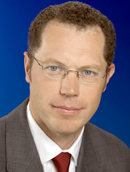 Meuchner |
Attending Seminar in 2010 and 2012 was Oscar Suris, XVP of corporate communications, Wells Fargo & Co., who reports to Patricia Callahan, senior XVP and chief administrative officer. Suris, although not a member of the PR Society, is co-chair of the 2013 annual conference in Philadelphia Oct. 26-29. This has caused ire among some members who wonder why such a lofty post was bestowed on a non-member.
Page has a new professional development program whose initial cost is $3,750. Heading it is Gary Sheffer, VP-CC and PA of GE, who is also a Seminarian. Sources say Page members are dissatisfied with the APR program of PR Society of America, which is attracting less than half the recruits it once did and whose multiple-choice test involves no writing. The International Assn. of Business Communicators suspended its Accredited in Business Communications program last year.
The PR Society announced on May it is starting a plan to "enhance the profile and prestige" of the APR credential and has hired the Organizational Performance Group, Hamden, Conn., to assist with this.


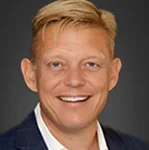 Business leaders will face challenges in the upcoming year, some of which will come as a complete surprise, or beyond anyone's imagination.
Business leaders will face challenges in the upcoming year, some of which will come as a complete surprise, or beyond anyone's imagination.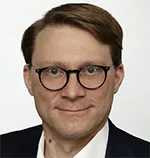 Teneo has hired Philipp Grontzki, who is a 20-year veteran of corporate communications and financial journalism, as a managing director in its strategy and communications group.
Teneo has hired Philipp Grontzki, who is a 20-year veteran of corporate communications and financial journalism, as a managing director in its strategy and communications group. Rowan Benecke, who co-founded Zeno Group and helmed Burson-Marsteller's tech practice, has joined McKinsey & Co as director of communications for North America.
Rowan Benecke, who co-founded Zeno Group and helmed Burson-Marsteller's tech practice, has joined McKinsey & Co as director of communications for North America.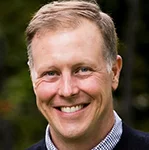 BCW has named Golin's Matt Coldagelli EVP and leader of its corporate affairs practice in Chicago.
BCW has named Golin's Matt Coldagelli EVP and leader of its corporate affairs practice in Chicago.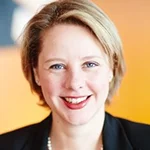 Abby Bailey, who headed corporate communications for Fedex in its Middle East, India and Africa region, has joined Teneo as managing director in Dubai.
Abby Bailey, who headed corporate communications for Fedex in its Middle East, India and Africa region, has joined Teneo as managing director in Dubai.


 Have a comment? Send it to
Have a comment? Send it to 
No comments have been submitted for this story yet.